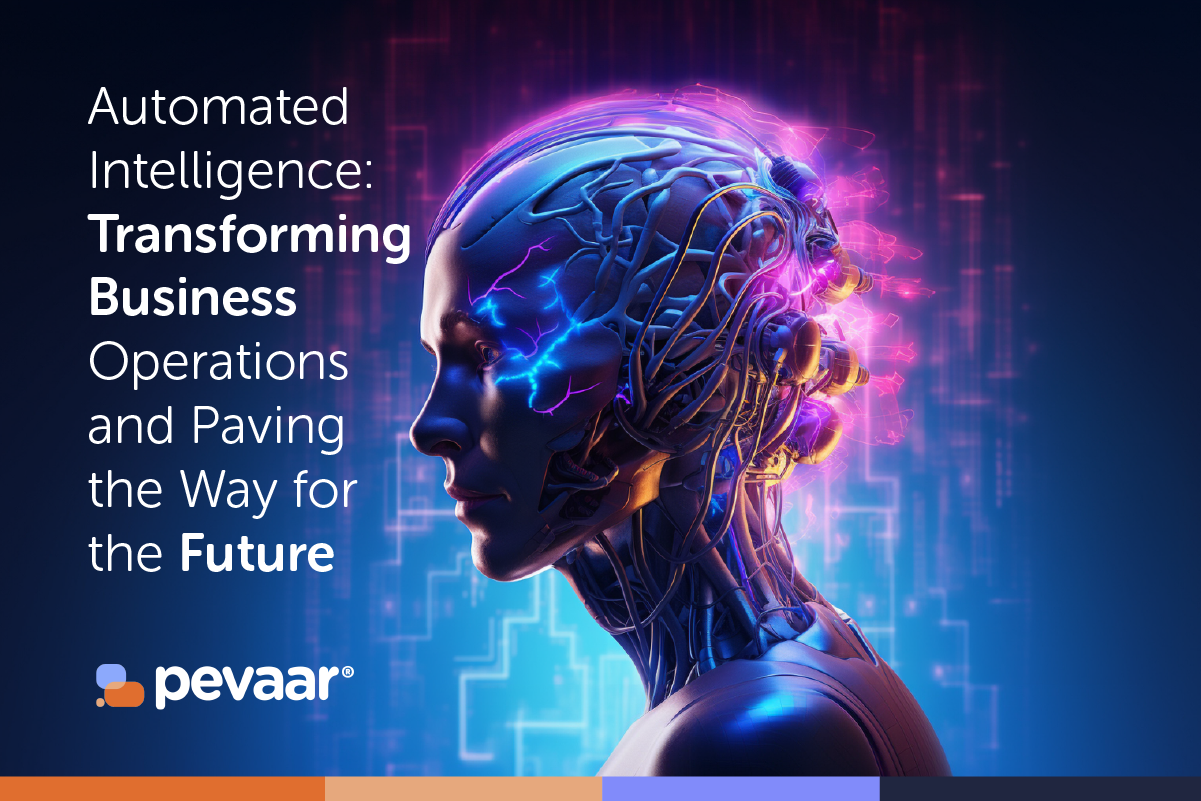10 Ways Automated Intelligence is Revolutionizing Business Operations and Transforming the Future of Work
The digital era has brought rapid advancements in technology, and at the forefront of these developments is automated intelligence. This revolutionary integration of artificial intelligence (AI) with automation is redefining how businesses operate, innovate, and grow. Far more than a tool for automating repetitive tasks, automated intelligence empowers organizations to solve complex challenges, optimize decision-making, and enhance scalability in ways that were previously unimaginable.
In this comprehensive guide, we will explore the depths of automated intelligence, from its definition and benefits to its applications across industries, the challenges it presents, and how businesses can implement it effectively. Whether you are a small startup or a large corporation, understanding and adopting automated intelligence can position your business for success in a rapidly changing landscape.
Table of Content
- What Is Automated Intelligence?
- The Growing Importance
- Key Benefits
- Applications of Automated Intelligence Across Industries
- How to Implement it in Your Business
- Overcoming Challenges
- The Future of Automated Intelligence
- Unlocking Full Potential
What Is Automated Intelligence?
Automated intelligence refers to the integration of AI capabilities—such as machine learning, natural language processing (NLP), and predictive analytics—into automated workflows. Unlike traditional automation, which executes tasks based on pre-programmed rules, automated intelligence adapts and evolves by analyzing data, learning from it, and making decisions autonomously.
This dynamic fusion enables businesses to go beyond simple task execution. With automated intelligence, organizations can anticipate challenges, respond to changes in real time, and continuously improve their processes. It bridges the gap between human ingenuity and machine efficiency, making it a vital asset for modern enterprises.
The Growing Importance
The increasing complexity of global business environments demands innovative solutions that can handle large-scale operations efficiently. AI addresses this need by enabling businesses to:
- Streamline operations and eliminate inefficiencies.
- Leverage real-time data insights to improve decision-making.
- Reduce operational costs while maintaining high-quality outputs.
- Scale operations effortlessly in response to market demands.
- Deliver exceptional customer experiences through personalization.
Companies that embrace it not only gain a competitive advantage but also create a foundation for long-term growth and innovation.
Key Benefits
- Unparalleled Efficiency
Automated intelligence transforms workflows by accelerating processes and eliminating manual errors. AI-driven systems can analyze vast amounts of data in seconds, uncovering patterns and insights that would take human team’s days to discover.
- Significant Cost Savings
By automating both repetitive and complex tasks, businesses can reduce labor costs and minimize resource wastage. Intelligent Automation optimizes resource allocation, ensuring maximum ROI.
- Seamless Scalability
As organizations grow, automated intelligence systems can handle increased workloads without compromising speed or accuracy. This scalability is particularly beneficial for industries with fluctuating demands, such as e-commerce and logistics.
- Enhanced Decision-Making
Predictive analytics and real-time data processing empower businesses to make smarter decisions faster. Intelligent Automation identifies trends, anticipates challenges, and recommends strategic actions.
- Improved Customer Experiences
AI-powered systems enable hyper-personalized interactions, whether through tailored product recommendations or real-time support from intelligent chatbots. These enhancements build stronger customer relationships and drive loyalty.
- Streamlined Operations
By automating end-to-end processes, businesses can focus on innovation and strategic growth rather than getting bogged down by operational inefficiencies.
Applications of Automated Intelligence Across Industries
- Healthcare
In healthcare, AI is revolutionizing diagnostics, patient care, and administrative efficiency. AI systems can analyze medical imaging to detect diseases, predict patient outcomes, and streamline hospital workflows, enabling healthcare providers to deliver better and faster care.
- Finance
Financial institutions use automated intelligence to detect fraud, assess risks, and forecast market trends. By processing real-time transaction data, these systems identify anomalies and provide actionable insights, enhancing both security and profitability.
- Retail
Retailers leverage automated intelligence for inventory management, supply chain optimization, and personalized marketing campaigns. AI tools analyze consumer behavior to forecast demand, recommend products, and enhance customer satisfaction.
- Manufacturing
Smart factories powered by Intelligent Automation utilize predictive maintenance, quality control, and workflow optimization. These systems reduce downtime, ensure product consistency, and improve production efficiency.
- Customer Service
AI-driven chatbots and virtual assistants provide 24/7 support, efficiently resolving customer inquiries and improving response times. Automated systems also reduce the workload on customer service teams, allowing them to focus on complex issues.
- Marketing and Sales
Automated intelligence enables precision marketing by analyzing customer data and predicting purchasing behavior. Businesses can automate lead nurturing, optimize ad placements, and deliver personalized campaigns that boost conversions.
- Logistics and Supply Chain Management
In logistics, automated intelligence ensures efficient operations by predicting delivery delays, optimizing routes, and managing inventory levels. This results in faster deliveries, reduced costs, and happier customers.
How to Implement it in Your Business
- Identify Automation Opportunities
Begin by analyzing your workflows to identify tasks that are repetitive, time-consuming, or prone to errors. Focus on areas where automation can deliver maximum impact, such as data entry, customer service, or supply chain management.
- Choose the Right Tools and Platforms
Select AI-powered tools that align with your business objectives. Ensure these solutions integrate seamlessly with your existing systems to avoid disruptions during implementation.
- Invest in Training and Development
Equip your team with the knowledge and skills needed to manage and optimize Intelligent Automation systems. This ensures a smooth transition and maximizes the benefits of your investment.
- Monitor and Optimize
Once implemented, continuously monitor the performance of your automated intelligence systems. Use feedback and analytics to refine workflows, address challenges, and ensure long-term success.
Discover how tools like Microsoft Power Automate can transform your workflows and optimize your business operations
Overcoming Challenges
While the potential of AI is vast, its implementation is not without challenges. These include:
- Data Security Risks
Protecting sensitive information is crucial, especially when dealing with AI systems that process large volumes of personal and business-critical data.
- High Initial Costs
The upfront investment required for automated intelligence solutions can be significant. However, the long-term cost savings and operational efficiencies often outweigh these initial expenses.
- Workforce Adaptation
Introducing automated systems may require upskilling employees and addressing concerns about job displacement. Organizations should focus on retraining and reassigning staff to roles that add greater value.
- Ethical and Regulatory Considerations
As AI systems take on decision-making roles, businesses must ensure transparency, fairness, and compliance with ethical standards and regulations.
Ensure your data is protected when implementing automation systems by following best practices recommended by organizations like the Cybersecurity & Infrastructure Security Agency (CISA).
The Future of Automated Intelligence
The future of automated intelligence is filled with promise. Key trends shaping its evolution include:
- Hyperautomation
Integrating multiple AI tools to create end-to-end workflows that manage complex processes autonomously.
- Self-Learning Systems
AI systems that continuously improve and adapt without human intervention, making them increasingly efficient and reliable.
- Green AI and Sustainability
Leveraging Intelligent Automation to optimize energy consumption, reduce waste, and support environmentally friendly practices.
- Ethical AI Development
Building systems that prioritize transparency, accountability, and fairness to foster trust among users and stakeholders.
Unlocking Full Potential
AI is not just a technological advancement—it’s a game-changer that redefines how businesses operate, innovate, and grow. By automating workflows, enhancing decision-making, and delivering personalized experiences, this transformative technology enables organizations to achieve unparalleled efficiency and scalability.
At Pevaar, we specialize in designing tailored automation solutions that meet the unique needs of your business. Whether you’re looking to optimize operations, implement AI, or develop scalable software systems, our team of experts is here to help you succeed.
Contact us today to learn how automated intelligence can revolutionize your business. Let’s work together to build smarter, faster, and more effective solutions with Pevaar.












Leave a Reply